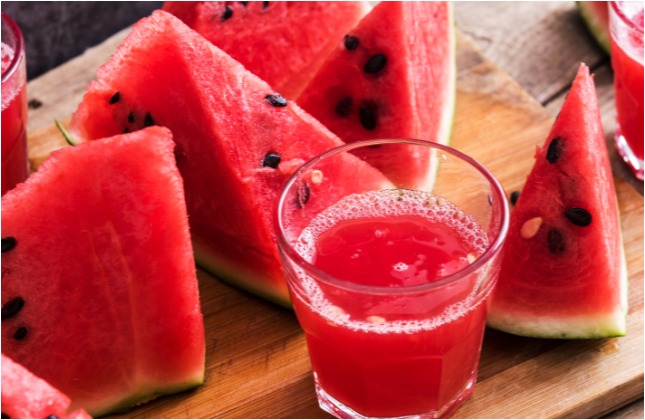
Watermelon is a delicious and refreshing summer fruit that offers a range of health benefits. Here are some key points about watermelon and its nutritional advantages:
- Hydration: Watermelon lives up to its name by being a hydrating fruit, as it consists of about 90% water. Consuming watermelon can help keep you hydrated, especially during hot weather or when engaging in physical activities.
- Vitamins: Watermelon is a good source of various vitamins, including vitamin A, which is essential for maintaining healthy skin and vision. Vitamin B6 supports brain function and helps convert food into energy, while vitamin C is a potent antioxidant that boosts the immune system and supports skin health.
- Lycopene: Watermelon is one of the best-known sources of lycopene, a powerful antioxidant responsible for its vibrant red color. Lycopene has been linked to numerous health benefits, including reducing the risk of certain types of cancers and promoting heart health.
- Blood Pressure Regulation: Watermelon contains citrulline, an amino acid that can be converted into arginine, which helps relax blood vessels and improve blood flow. This can contribute to the regulation of blood pressure and support heart health.
- Low in Calories: Despite its sweet taste, watermelon is relatively low in calories, making it a refreshing and guilt-free treat for those watching their calorie intake.
- Electrolytes: Watermelon contains essential electrolytes like potassium and magnesium, which are important for maintaining proper muscle and nerve function and can aid in post-exercise recovery.
Including watermelon in your diet during the summer can be a great way to stay hydrated, boost your intake of essential vitamins and antioxidants, and support overall health. Enjoy it as a refreshing snack, blend it into smoothies, or use it in fruit salads for a delightful and nutritious addition to your summer menu.
